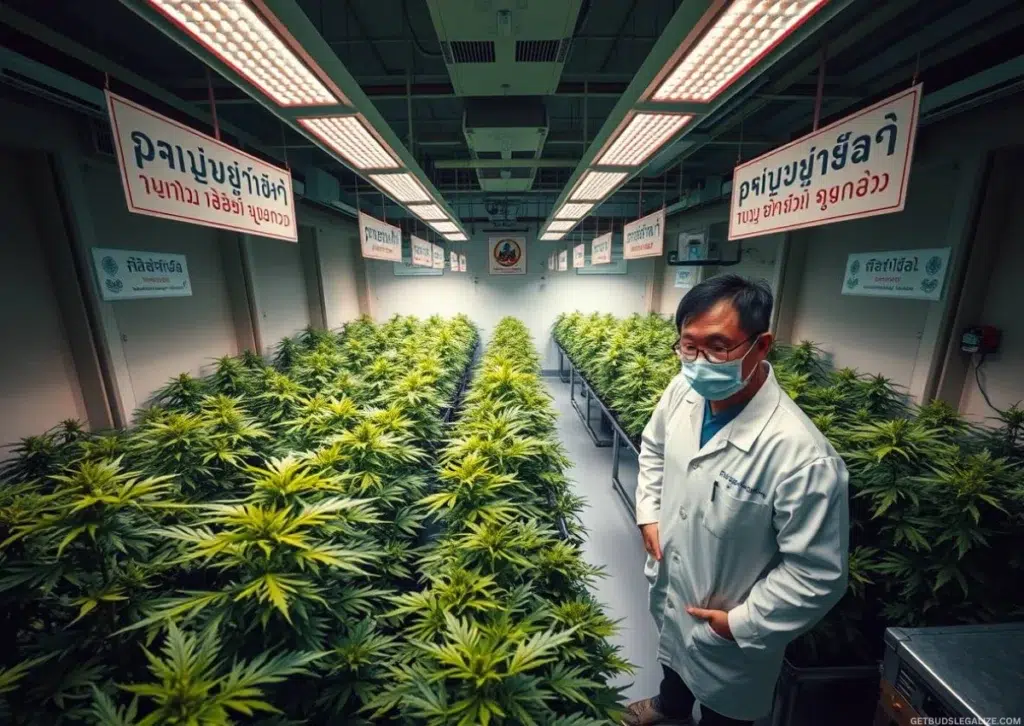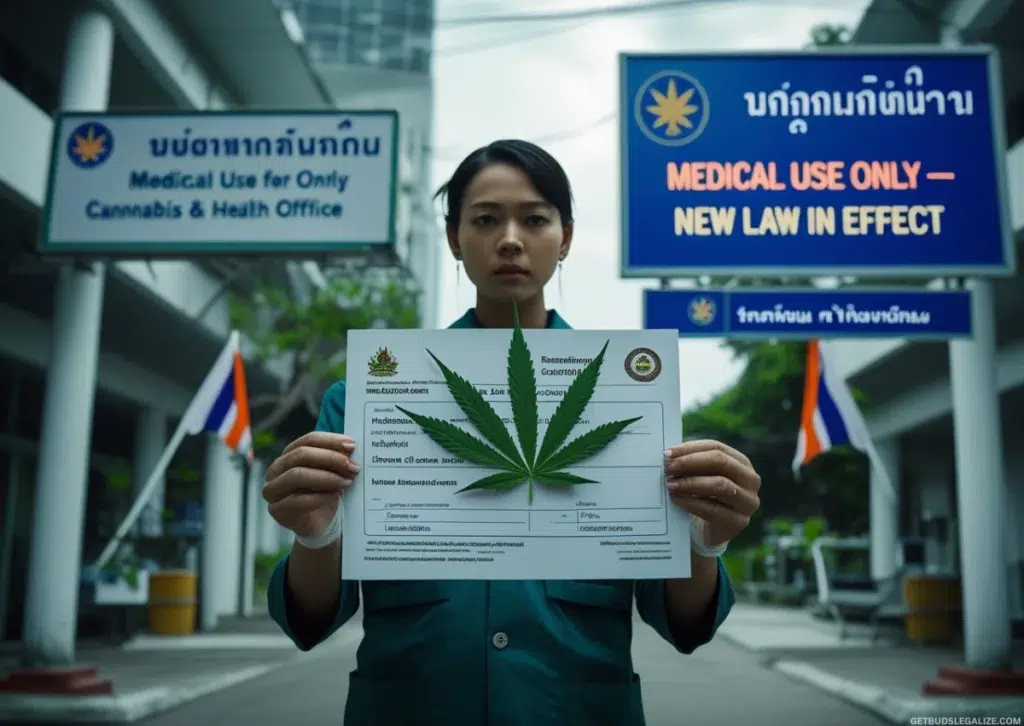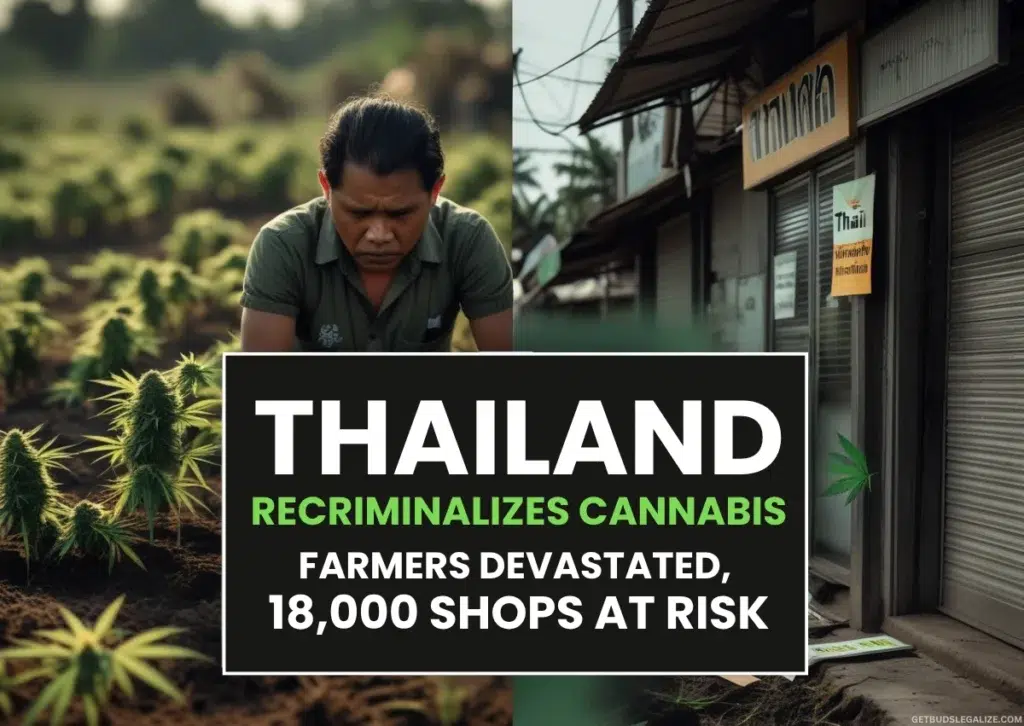Thailand Medical Cannabis Regulations 2025: New Medical Certificate Requirement and Recreational Use Crackdown Within 40 Days
BANGKOK, THAILAND – In a major policy shift, Thailand’s Public Health Ministry has announced that all cannabis users will soon be required to present a medical certificate to legally consume the plant — a move aimed at curbing widespread recreational use just three years after cannabis was decriminalized.
The announcement, made by Public Health Minister Somsak Thepsutin on May 22, signals a rapid return to tighter cannabis control, with new regulations expected to take effect within 40 days.
From Legal Highs to Medical Control
Following Thailand’s historic decriminalization of cannabis in 2022, the country quickly became Southeast Asia’s weed hotspot. Cannabis cafes, dispensaries, and pop-up weed shops mushroomed in cities like Bangkok and Chiang Mai, drawing both local users and international tourists.
But the absence of comprehensive regulation soon became a concern. The result: a rise in recreational use and confusion over what’s legal. Minister Somsak now wants to rein it in.
“Cannabis smokers may have to show medical certificates. Foreign and Thai cannabis users must comply,” he told reporters.

What the New Regulations Include
Under the proposed rules, cannabis will be redefined as a controlled medical herb, available only to those with qualifying health conditions. Here’s what’s changing:
- Medical certification required: All users must present a doctor’s note, including those from traditional Thai medicine practitioners or licensed physicians.
- Approved medical conditions: Conditions include epilepsy, chronic pain, migraines, anxiety, and insomnia.
- Monthly dosage limits: Use will be capped at a one-month supply. Extended use without renewed approval could result in prosecution.
- Legal consequences: Penalties, including possible jail time, are being discussed for unauthorized use.
This crackdown comes ahead of a still-pending Cannabis and Hemp Control Bill, which has yet to pass Parliament.
Politics Behind Thailand’s Cannabis U-turn
Thailand’s journey toward cannabis legalization was driven by the Bhumjaithai Party, which made it a central campaign pledge. In 2022, then-Public Health Minister Anutin Charnvirakul removed cannabis from the national narcotics list, ushering in a booming — and largely unregulated — cannabis industry.
But with the Pheu Thai Party now leading the government, the focus has shifted to public health and stricter regulation. Current Health Minister Somsak Thepsutin is taking urgent action, leveraging the Controlled Herbs Act to issue emergency rules — sidestepping the slower parliamentary process.
A Cannabis Control Bill, introduced by Pheu Thai last September, proposes tighter licensing for cultivation, retail, and export. However, it falls short of banning recreational use outright, a move likely influenced by ongoing political pressure from Bhumjaithai, a key coalition partner still advocating for broader cannabis access.

What Cannabis Users, Tourists, and Businesses Should Expect in Thailand
Thailand’s upcoming cannabis regulations signal a dramatic shift toward tighter medical control. Whether you’re visiting the country, using cannabis for health reasons, or operating in the industry, here’s how the changes could affect you:
For Tourists:
- Medical documentation required: Do not bring or purchase cannabis in Thailand without a valid local medical certificate.
- Increased law enforcement: Popular tourist zones will likely see stricter checks and enforcement of the new rules.
For Medical Cannabis Patients:
- Get a certified diagnosis: You’ll need a prescription from a licensed Thai doctor or traditional medicine practitioner.
- Monitor usage limits: Stay within the monthly dosage cap to avoid penalties or legal action.
For Cannabis Businesses:
- Comply with licensing laws: Ensure you have up-to-date permits for cultivation, retail, or export under the new framework.
- Prepare for regulatory audits: Authorities may increase inspections and enforcement, so update all documentation and procedures.
Final Thoughts
Thailand’s cannabis story is evolving rapidly. What started as a bold experiment in drug policy reform is now being reshaped into a strictly medical framework, with tighter controls and legal oversight.
While this doesn’t mark the end of cannabis in Thailand, it raises the bar for responsible use and regulation. For now, recreational users — both foreign and local — will need to reconsider their approach.
🔔 Stay Informed
For ongoing updates on cannabis policy in Thailand and across Asia, subscribe to our newsletter and follow us on our social media.
Frequently Asked Questions: Thailand’s New Medical Cannabis Regulations (2025)
Yes, but only for medical use. Recreational cannabis use is no longer permitted under Thailand’s updated regulations. All users, including tourists and locals, must now present a valid Thai-issued medical certificate to legally possess or consume cannabis.
Only licensed Thai physicians and registered traditional Thai medicine practitioners can issue medical cannabis certificates. The certificate must include the patient’s diagnosis and a recommended dosage.
Approved conditions under the new guidelines include:
- Chronic pain
- Migraines
- Epilepsy or seizure disorders
- Insomnia
- Anxiety and depression
- Cancer-related symptoms
Always consult a Thai medical professional to determine eligibility.
Medical cannabis certificates will generally be valid for up to 30 days. Continued use requires renewal through a follow-up medical consultation. Using cannabis beyond the approved period without renewal may result in legal action.
Only with a Thai-issued medical certificate. Foreign-issued prescriptions are not accepted, and importing cannabis is illegal. Tourists found using cannabis without proper documentation may face arrest or deportation.
Penalties for unauthorized cannabis use may include:
- Fines
- Imprisonment
- Criminal charges
The government has announced that strict enforcement will target both Thai citizens and foreigners.
Businesses must:
- Hold valid licenses for cultivation, retail, or export
- Verify that all customers have proper medical certification
- Prepare for random inspections and stricter compliance checks
Failure to comply may lead to fines, license suspension, or closure.
While the new rules focus on medical use only, there is currently no explicit ban on recreational use in the pending Cannabis and Hemp Control Bill. However, regulatory enforcement will make recreational use nearly impossible without a valid medical certificate.
The bill, introduced in late 2024 by the Ministry of Public Health, aims to regulate cannabis through:
- Licensing systems
- Usage guidelines
- Restrictions on sales and distribution
As of May 2025, the bill has not yet passed Parliament. In the meantime, Minister Somsak is using emergency authority under the Controlled Herbs Act to enforce new rules.
The updated regulations are expected to be enforced within 40 days of the announcement on May 22, 2025, placing the implementation date around early July 2025.



















